By Melanie Nathan, Nov 26, 2011, 2.30 AM PST
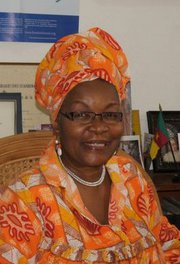
Alice Nkom
In Africa: Legislation criminalizing homosexuality permits persecution and cases where people are punished simply for the way they look.
Africa is bedrock of anti-homosexual sentiment, and heightened criminalization; with Cameroon emerging as the most punitive of the African countries. Same-sex sexual acts are banned under Cameroonian law by section 347 of the penal code with a penalty of 5 years imprisonment and fines. On Thursday Amnesty International urged Cameroon to release two men sentenced to this maximum, by a court in Yaounde, the capital, for homosexuality; a third man sentenced in absentia jumped bail.
While the law prescribes the requirement of an “homosexual act” the facts of this case ominously suggests that these men were convicted on perceptive stereotyping rather than evidence of being caught in the act.
In addition to the five-year prison sentence, the maximum sentence for homosexual acts, the men, only known as Francky, Jonas and Hilaire, were each fined 200,000 CFA francs ($400). Their lawyer has appealed against the case; and in the meantime, perhaps worse is the apparent harassment and violence that inmates suffer while in prison, especially those convicted for homosexuality.
In a statement on their website, Amnesty International’s director for Africa, Erwin van der Borght urged the Yaounde court to overturn “this shocking sentence, which punishes these three men solely on the basis of their perceived sexual orientation.”
In August, Human Rights Watch reported that the three men were arrested on the night of 25 July. “Jonas, 19, and Franky, 20, were in the company of an un-named older man and were returning by car from a bar when they were stopped by police officers in Yaoundé. According to the report, the police upon first sight determined that Jonas and Franky were women because of their feminine appearance, and then after checking their identification documents, in which Jonas and Franky were identified as male, the police arrested all three. The three men were held illegally without being charged for seven day before charges were finally laid against them. Jonas and Franky claim that they were tortured and harassed by police.
The two young gay men apparently “confessed” to homosexuality after being tortured, according to a press statement by the Cameroon LGBT group Association for Defense of Homosexuality (ADEFHO) and Human Rights Watch (HRW).
Michel Togue, the attorney for the men told reporters that the judge made offensive anti-gay innuendos through the trial.
“Police in Cameroon are arresting people for supposedly looking homosexual, which is absurd and also violates Cameroon’s constitution as well as international law,” said Alice Nkom, Director of Association pour la Défense de l’Homosexualité (ADEFHO) in August.
Nkom, a prominent Cameroonian gay rights attorney and activist: “the men were jailed because they looked like women.” The prosecution accused them of having oral sex in a car, but the men denied the accusation, imparting that the charges were trumped up.
Ms. Nkom is a unique presence, willing to openly criticize the justice system in its handling of these cases, despite rising threats and a profound resistance to her presence. Her country’s minister of justice has made attempts to strike her off the professional register. Like other activists in the region, Ms. Nkom’s life has been threatened and even more insidiously by members of her own profession. “Defending men or women accused of homosexuality, is not a popular cause in central Africa, and threats arrive by email and telephone. The danger is increasing” laments Nkom.
“Amnesty International considers the two men to be prisoners of conscience who are being punished solely because of their perceived sexual orientation. The use of criminal law to punish private sexual activity between consenting adults goes directly against international human rights laws that Cameroon has signed and ratified,” according to Van der Borght, stating further that
“The government must take steps to end detentions, arrests and harassment of individuals on the grounds of their perceived or real sexual identity.”
The history is one of clear persecution against gays in the Country. Back in In May 2005, 11 men were arrested at a nightclub on suspicion of sodomy, and the government threatened to conduct medical examinations to “prove” their homosexual activity. As of February 2006, nearly all were still being detained, with trials scheduled in March 2006.
“It’s getting worse,” Nkom told the Guardian during a visit to London. “These laws are illegal – the declaration of human rights is part of our constitution – but the judges still apply them. It’s very difficult to prove you have had sex. Under the procedural code you cannot be put in jail unless caught in delecto flagrante, (in the act.)” But clearly that does not seem to be the case any longer as the Courts are now metering out convictions and sentences with very little evidence of the actual acts.
“But they always put people accused of homosexuality in jail straight away. People are targeted because they wear makeup or looked effeminate. One client was given a three-year sentence because he wrote a text message. It’s a very corrupt environment and people get paid for informing on others.”
Life for gay people in Cameroon became more difficult after 2005 when the Catholic archbishop made homosexuality part of his Christmas homily, blaming it for youth unemployment. The newspapers also carried a vehement denunciation of homosexuality by Bishop Victor Tonye Bakot who criticized European countries for giving it legitimacy.
Sources http://www.cameroononline.org/2011/11/17/cameroon-gay-rights-lawyer-warns-of-rise-in-homophobia/#!prettyPhoto[inline]/0/
http://www.amnesty.org/en/news/cameroon-urged-release-men-jailed-alleged-homosexuality-2011-11-24
http://news.bbc.co.uk/2/hi/africa/4685298.stm





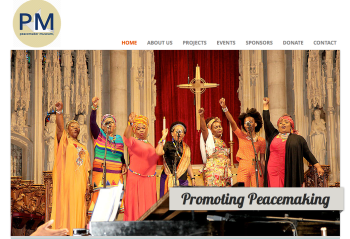




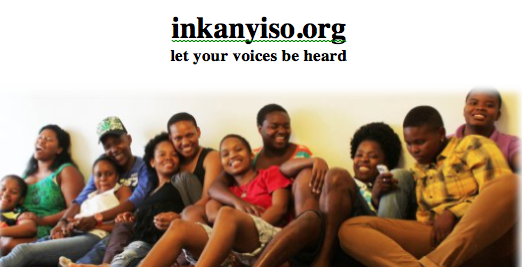






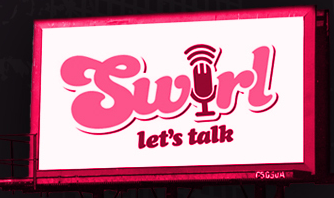
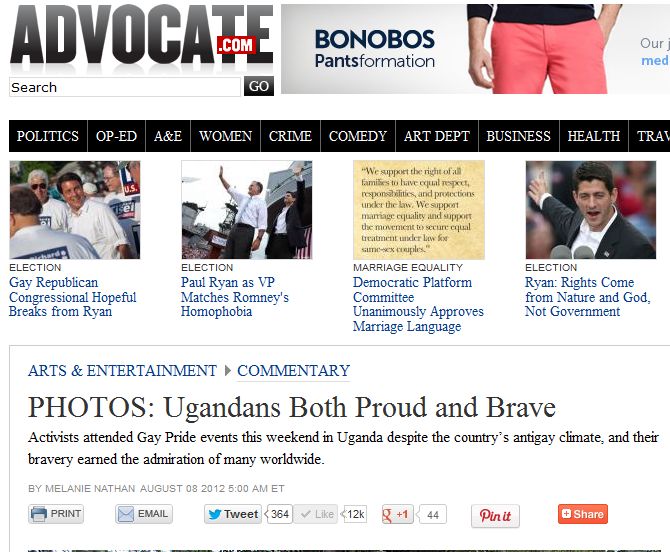
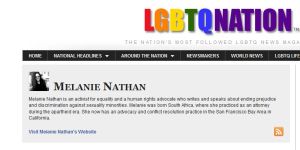
 PoochParkWear customizes hoodies and t-shirts, the good, the naughty, the in between, whether proud or quirky let them be seen. We also offer biker jackets, croc or pleather collars, a variety of collar charms, and our special Zinja beaded collars made by a co-op of HIV-positive South African women, the Sisonke women who weave the beads onto the collars.
PoochParkWear customizes hoodies and t-shirts, the good, the naughty, the in between, whether proud or quirky let them be seen. We also offer biker jackets, croc or pleather collars, a variety of collar charms, and our special Zinja beaded collars made by a co-op of HIV-positive South African women, the Sisonke women who weave the beads onto the collars.

This is so disturbing. I want to do something about this I am just so unsure of what. Thanks for sharing this Melanie.